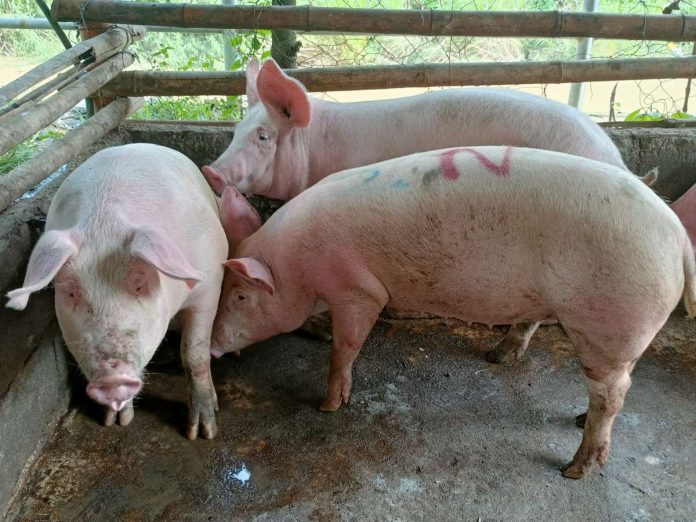
ILOILO City – Western Visayas hog farmers’ losses due to the African Swine Fever (ASF) have reached P762.5 million, according to the Department of Agriculture (DA) Region 6.
A total of 79,376 hogs either died or were depopulated in six provinces as of June 26, DA-6 data further showed.
ASF is a highly contagious viral disease of domestic and wild pigs, whose mortality rate can reach 100 percent. It is not a danger to human health, but it has devastating effects on pig populations and the farming economy.
Capiz has the most number of hog mortalities and depopulated swine heads at 47,645, or P428,895,000 worth of damage.
Negros Occidental followed with 14,430 hog deaths amounting to P152,607,500; Iloilo (12,485 hog heads, or P124,850,000); Aklan (2,389 hog heads, or P23,350,500); Antique (2,051 hog heads, or P19,291,500); and Guimaras (376 hog heads, or P3,675,000).
338 WV barangays log ASF cases
As of July 14, confirmed cases of ASF were recorded in 338 barangays from 68 municipalities across the region.
Despite the spread of the hog disease, Western Visayas remains at the top 5 regions in terms of hog inventory (heads).
The region particularly ranked fourth with 996,529 hog heads next to CALABARZON, Central Visayas and Northern Mindanao. This comprises 9.79 percent share of the 10,176,727 total hog inventory in the Philippines.
Of the total hog heads in the region, 92.85 percent or 925,284 are raised by smallhold hog farmers; 0.61 percent or 6,051 percent are semi-commercial; and 6.54 percent or 65,194 are commercial.
Meantime, as to the percentage distribution, Negros Occidental is still the largest producer with 491,066 hog inventory followed by Iloilo with 182,020; Capiz (124,976); Aklan (98,398); Antique (76,384); and Guimaras (23,686).
Data further showed there is a 14.18 percent decrease in the region’s hog inventory as of April 1 this year compared to the same period in 2022 with 1,161,222 hog heads.
Dr. Jonic Natividad, DA-6 regional focal person on ASF and Other Animal Diseases Task Force, yesterday said the region still has enough supply in terms of local hog production.
However, he expressed concern as to until when this can be sustained especially if the ASF cases continue to spike.
He emphasized the importance of practicing strict biosecurity measures among hog farmers to prevent the spread of the hog disease.
For his part, new DA-6 regional director Dennis Arpia emphasized that boosting the biosecurity level is one of the keys to manage or control ASF.
Arpia stressed that while the vaccine against ASF is not yet available, it is important to tighten the biosecurity measures.
“Kaya importante ang education tungkol dito,” he said.
Aside from swill feeding, he cited that one of the superspreaders of ASF are the humans themselves who do the hog trade and bring pork products to their homes.
“‘Pag alam nang tao how to manage the risk, kahit backyard (hog farm) malaking bagay ‘yun,” said Arpia.
Meantime, Arpia noted that the government is looking and ready to allocate fund if ever there is already a vaccine available against ASF.
“‘Yun po ang maganda dahil ang ating [DA] secretary ay ang ating Pangulo, baka naman mas madaling mag-lobby. Kasi kailangang-kailangan po natin ‘yan. Ang tanong lang is gaano karami,” said Arpia.
The DA last month said it was closely coordinating with the Food and Drug Administration (FDA) on the issuance of Certificate of Product Registration on ASF vaccines from Vietnam.
DA Assistant Secretary for Operations Arnel de Mesa said their recommendation to certify the vaccine is now with the FDA.
He added they are also studying the proposal to subsidize private hog growers in availing the vaccine once it is available in the country./PN





